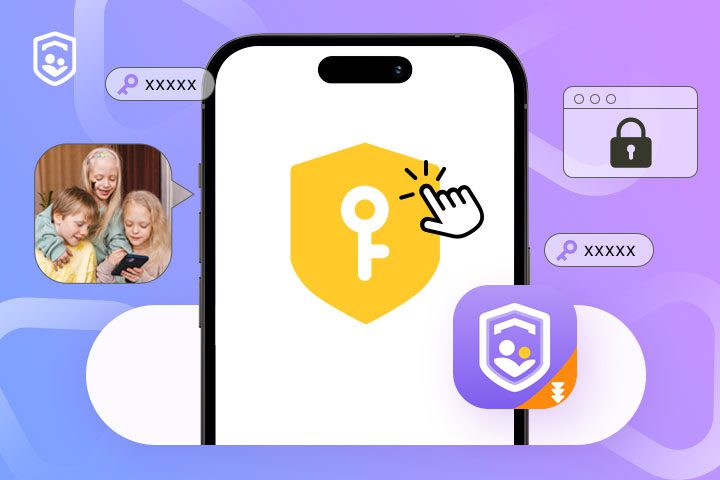With shopping online emerging in our lives, our lives are becoming more and more convenient. As a matter of fact, not only online shopping, but subscription services are also prevalent among online consumers. Some individuals believe that smartphones in the future could replace wallets. Under this background, money transfer apps play an important role in the process of consumption. Of course, concerns about the data security of an untraceable money transfer app also rise.
How do we protect our family? This article will give you an overview.
What are money transfer apps?



In fact, money-transfer apps are digital platforms that allow users to send, receive, and manage money using their smartphones or other mobile devices. These apps have gained popularity due to their convenience, speed, and ease of use, enabling people to send money to family, friends, or businesses without the need for physical cash or traditional banking methods.
Nowadays, parents would like their kids to have a money transfer app as a method of convenient payment. Of course, the amount of money might be limited, and it may not seem like an important lesson to teach your child about financial literacy, budgeting, and thrift.
But the pandemic has led to a trend toward conservation. We can conclude that parents should teach the next generation to prepare for unexpected events and potential risks, especially in the post-epidemic period. So, let your kids know more about an untraceable money transfer app.
Top 5 Untraceable money transfer apps
There are so many money transfer apps on the app store. They are available in different regions and different banks. How do they work? The mechanisms are very similar. But they are, to some extent, encrypted and hard to trace. That is why untraceable money transfer apps are not suitable for kids.
Here, we would like to introduce some well-known untraceable money transfer apps that parents often allow their children to use:
PayPal
PayPal is a widely used online payment system in over 200 countries worldwide. Individuals and businesses can use PayPal to send and receive money securely over the Internet. PapPay offers a range of services, including person-to-person transactions, online shopping, and in-app purchases. Additionally, businesses can accept payments on their websites via PayPal.
Cash App lets users quickly receive and send money on mobile devices. On the Cash App, you can also allow users to purchase stocks and bitcoin. Cash App is a financial platform, not a bank per se.
Venmo
Venmo is an app you can use to make transactions with friends and businesses. You can set up a PIN code in Venmo as the second layer of protection to prevent hacking. And you can set privacy settings to choose who can see your transaction activity.
Zelle
Zelle is a P2P money transfer app. You can use Zelle to move funds between different banks. By comparison, Zelle does not charge an extra fee for an instant transfer. Both you and the recipient need to have a U.S. bank account, and it does not have to be in the same bank.
Square
Square concentrates its business on small businesses. It offers a range of products, including payment processing solutions for both hardware and software. Square helps you manage sales and inventory.
How to talk to your child about these untraceable money transfer apps?



First, open conversations about your child’s digital wallet are a good start. Direct and honest conversations are much appreciated by kids. They are more single-minded and will find it more comforting to express themselves with honest people.
Second, make sure that every payment is transparent. For example, when your child wants to buy something online or pay by money transfer, they should ask for your permission first.
Another good idea is that you put a reasonable amount of money in your children’s digital wallet. Then, you could check the balance from time to time to ensure your child doesn’t waste money online.
Third, teach your child to plan their future. Good habits can’t be formed in one day, and our lifetime is going to be spent with money. How to make money go a long way really impacts your child’s life for the rest of their life. For example, a lesson to down-to-earth budget and avoid extravagance and squandering is what you should teach your child.
Dangers about anonymous money transfer apps



In this sector, we will explore the dangers of an untraceable money transfer app. When you give your child a PayPal account or other online payment account, you should notice:
- Lack of parental controls: Anonymous money transfer apps may allow kids to make transactions without parental supervision and authorization. This setback could cause children’s misuse of their money.
- Privacy concerns: Parents often give kids one of their accounts without extra protective methods. This could leak both your and your children’s privacy.
- Fraud and scams: Some money transfer apps may lack robust security measures. That’s why some scammers often use them for fraudulent activities.
- Financial literacy: These money transfer apps facilitate children’s consumption. They may not have to take physical cash. But the convenience is double-edged. If they don’t learn to budget, they may waste their money or exceed their budgets.
How can I protect my kids when sending money online?
Come back to the money-transfer apps. How can we protect our children from the perils of the Internet? Here are some online tips for parents:
- Set strong passwords for kids: This is a basic protection for the account. Besides, most money transfer apps can set a PIN code for an extra layer of protection.
- Teach your child about phishing: Some scammers probably send fake messages and strange links to deceive for money and privacy. Don’t trust anything alluring on these money transfer apps.
- Don’t send money to any strangers: Tell your child to only trust people they meet in real life. Some fraudsters could fabricate stories to swindle people out of money.
Besides the untraceable money transfer apps, we suggest you use more family-friendly money transfer apps, like:
- Venmo Teen
- Apple Cash Family
- Google Play Family Payment
- Bankaroo
- Step Banking
- Greenlight
These apps are developed for family groups. Some parental control features are made to protect minors.
Apart from the kid-friendly payment apps, there are some apps that help parents teach children to manage money:
- Kiddle Kredit: This is a simple app with plenty of resources about credit scores and financial responsibility. On Kiddle Kredit, parents can set tasks for kids to complete. Another good news is that Kiddle Kredit’s basic features are free to use!
- Savings Spree: This app is in fact a fun game to teach children how finances affect their lives. On the Savings Spree, children need to make choices that lead to savings or fail. This game is for kids about 7.



Digital safety of money transfer apps with FlashGet Kids
While an untraceable money transfer app is a vexed question for parents, FlashGet Kids can help your children foster good netiquette and keep them safe. Our children want to explore the Internet and learn some digital skills. That’s why we shouldn’t block them from smartphones, PCs, and other electronic gadgets.
FlashGet Kids is a powerful parental control app. From Screen Time, App Blocker to Location Tracking and Live Monitoring, our parental control app gives your child freedom and safety at the same time. Sign up now, and you can get a free trial.



Final words
After reading this article, you must have a clear understanding of money apps and how to teach your children to manage their money in life. We strongly recommend that you start teaching your children about financial literacy as soon as possible. If you are looking for better online resources and parental controls on your kids’ smartphones, FlashGet Kids is ready for you!
FAQs about untraceable money transfer apps
Does PayPal show your name?
Yes. When you send money to someone, you need to share the information to complete the transaction. For example, if you use PayPal to send money to your friend, he will see your name and email address. But PayPal doesn’t show your bank account number. The business account doesn’t show your real name.
Can someone find out who I am on the Cash App?
Generally, the Cash App only shows your name to the person you’re sending money to. It doesn’t display your credit card number. From this point, your privacy is well-maintained. But we suggest you not give out your information easily, especially to some strangers or some promotion ads.
Can I use a fake name on Venmo?
In fact, Venmo requires your legal name to complete the identity verification step. But you can create a profile with a nickname, and your real name will be concealed. We strongly advise you to use a nickname rather than a real name as your username if you give your child an account and teach them how to manage digital money.
Can someone send me money without online banking?
Yes. Some apps do not compulsorily require a bank account to receive money. Google Wallet is also a way to transfer money without banking. With Google Pay, you can transfer money to a person’s phone number or email address.

